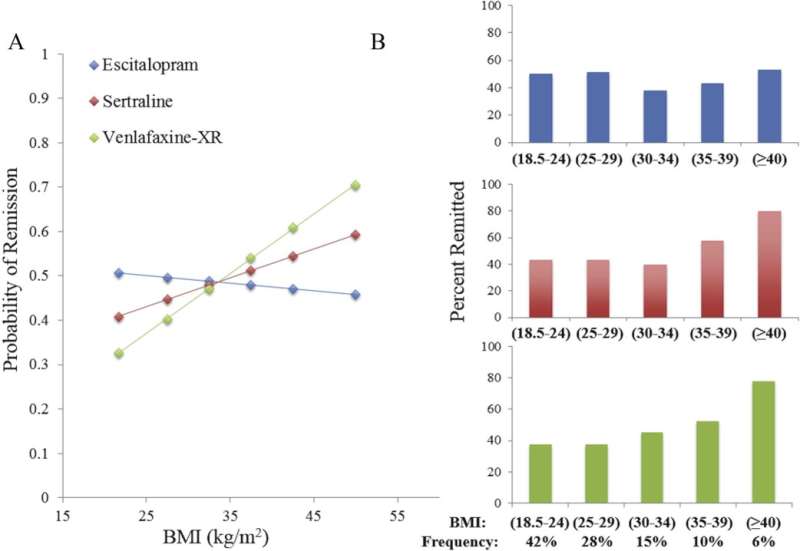Personalized psychiatry matches therapy to specific patients with depression

Selecting the antidepressant that will be most effective for a specific patient suffering from depression can be a "try and try again" process. Examining new personalized and precision psychiatry approaches, a new study in Personalized Medicine in Psychiatry shows that body mass index (BMI), sex of the patient, and symptom profile can be used to determine a personalized treatment that guides antidepressant choice and significantly improves patient outcome.
"We are in the midst of a paradigm shift in the field of psychiatry, to find specific clinical and biological signals that help clinicians and patients decide what is the best treatment," explained lead investigator Leanne Williams, PhD, VA Palo Alto Health Care System and the Department of Psychiatry and Behavioral Sciences, Stanford University School of Medicine. "This is the shift to incorporate precision medicine approaches to improve outcomes for patients. Our study adds new knowledge to this effort, and does so for two commonly associated chronic conditions, clinical depression and obesity, that need new treatment approaches. Our results have the potential for a significant impact on the majority of patients suffering from depression who are seen in primary care and community settlings."
Researchers analyzed data from 659 adults (ages 18-65) with clinical depression who completed the International Study to Predict Optimized Treatment in Depression (iSPOT-D). They were randomly assigned one of three antidepressants (venlafaxine-XR, sertraline, or escitalopram) and followed for eight weeks of treatment. Height and weight were recorded and each participant completed the 17-item Hamilton Rating Scale (a self-reported depression inventory) before and after treatment to measure change in depression severity. Patients who improved so substantially that they were no longer experiencing clinical symptoms were defined as "remitters."
The study found that for both men and women, having a larger BMI than patients of "normal" weight predicted remission for venlafaxine-XR specifically, due to a reduction in physical symptoms, including sleep disturbance, somatic anxiety, and appetite. Females with higher BMI were likely to remit regardless of medication type and this effect was related to a change in cognitive symptoms, including thoughts of suicide and guilt.
These findings are very well suited for immediate translation into the primary care and community settings in which most patients are treated. Primary care doctors have access to information regarding patient sex, BMI (weight relevant to height), along with symptoms of depression.
According to lead author Erin Green, PhD, VA Palo Alto Health Care System and the Department of Psychiatry and Behavioral Sciences, Stanford University School of Medicine, "Although these findings require replication, they are ready for 'prime time' translation into clinical practice where there are currently no indicators and algorithms available for guiding treatment choice for patients with both depression and obesity."
"The future of psychiatry is in a precision, personalized medicine approach to refining diagnosis and tailoring treatments accordingly. This study demonstrates that currently available markers are poised to improve patient outcomes without introducing new costs. Markers such as BMI are likely to complement others being developed out of neuroimaging and genomics," added Dr. Williams.
More information: Erin Green et al, Personalizing antidepressant choice by sex, body mass index, and symptom profile: An iSPOT-D report, Personalized Medicine in Psychiatry (2017). DOI: 10.1016/j.pmip.2016.12.001




















